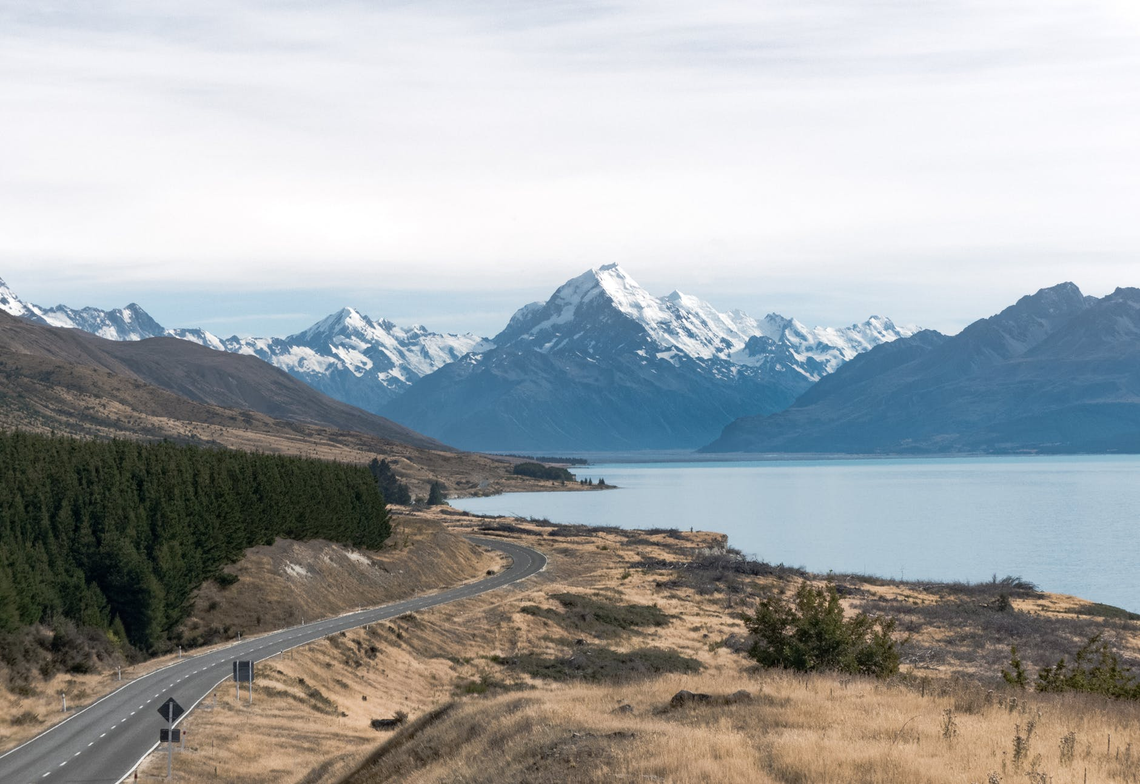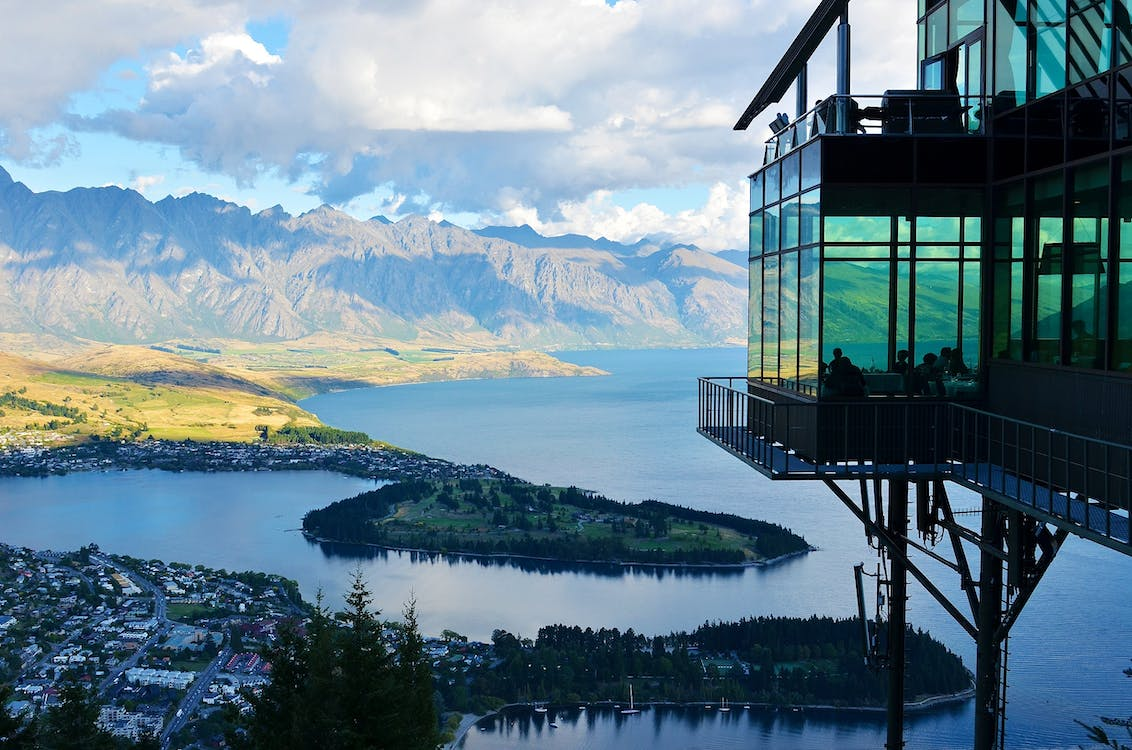
Apply to a foreign university with confidence
- Properly fulfilled documents
- Perfect motivation letter
- Support from a personal mentor
- Offers from several universities
Article score: 5 out of 5 (1 review)
English courses in New Zealand. List of language schools, programs costs, admission process and other facts.
Free consultation




Language courses in New Zealand can be combined with the exploration of the Maori tribe’s treasures or walks around the famous hobbit settlement. It is a very beautiful country with a unique culture and picturesque nature. Moreover, according to the EIU report, Auckland offers the most comfortable living conditions in the world[1]. At the same time, New Zealand is distinguished by democratic prices — the cost of English courses here is lower than in the United States and Great Britain.
Cost of English courses in New Zealand
| School | Program | Weeks | Tuition fee/week | Cities | Homestay | Residence |
|---|---|---|---|---|---|---|
| LSI | Afternoon 10* | 1-11 | 109-112 USD | Auckland | 136-174 USD/week | 165 USD/week |
| General 20* | 1-15 | 210-215 USD | ||||
| Intensive 24* | 1+ | 213-245 USD | ||||
| Evening Intensive 24* | ||||||
| Intensive 30* | 245-275 USD | |||||
| English for Business 30* | ||||||
| IELTS /TOEFL / TOEIC | ||||||
| Pathway 25* | 12+ | |||||
| Academic English 25* | ||||||
| English for Law | 8 | 245 USD | ||||
| Medical English | ||||||
| English for Aviation 20+* | 12 | 511 USD | ||||
| English for Teaching 20+* | ||||||
| 9 Day Compact | - | 4,841-5,431 USD/course | ||||
| One-to-One Lessons | 12,100 | NZD/lesson | ||||
| General 20* | 1-52 | 236-248 USD | Auckland, Wellington | 177-213 USD | 204 USD | |
| IELTS 20* | 6-48 | |||||
| Business English 20* | 6 | |||||
| General English/High School Preparation 20* | 1-52 | 248-260 USD | ||||
| English+Activities 28* | 1-5 | 348 USD | ||||
| Cambridge Exam Preparation FCE 20* | 9-12 | 236-248 USD | ||||
| Cambridge Exam Preparation CAE 20* | ||||||
| English Teacher Training TESOL 20* | 6 | 1,594 USD/course | ||||
| English Teacher Training TECSOL 20* | ||||||
| English Training CELTA 24* | 5 | 2,007 USD/course | ||||
| Evening 20* | 1-52 | 236-248 USD | ||||
| Part-time General English 7.5* | 1-26 | 106 USD | ||||
| Part-time IELTS 7.5* | 6-24 | |||||
| Part-time General English 10* | 1-26 | 142 USD | ||||
| Part-time IELTS 10* | 6-24 | |||||
| Part-time General English 12.5* | 1-26 | 171 USD | ||||
| Part-time IELTS 12.5* | 6-24 |
* number of lessons per week

| Type of program | Intensity | Group | Min. language level | Avg. cost per week |
|---|---|---|---|---|
| General English | 20 | 10-15 | Beginner | 230 USD |
| Intensive English | 25-30 | 8-10 | Beginner | 236 USD |
| English for Business | 24-30 | 8-10 | Intermediate | 263 USD |
| Academic English | 25-30 | 8-10 | Intermediate | 266 USD |
| English for Specific Purposes | 20-30 | 8-10 | Intermediate | 531 USD/lesson |
| Pathway | 25 | 8-10 | Intermediate | 266 USD |
| TOEFL / TOEIC / IELTS Preparation | 20-30 | 8-12 | Intermediate | 266 USD |
| Cambridge FCE / CAE | 20-30 | 8-12 | Intermediate/Advanced | 254 USD |
| Teacher Training (TESOL / TECSOL) | 20-30 | 10-15 | Upper-Intermediate | 1,771 USD/lesson |
| General English / High School Preparation | 25 | 10-15 | Beginner | 254 USD |
| English+Activities | 25-30 | 8-16 | Beginner | 348 USD |
| One-to-One Lesson | Individual | 1 | Beginner | 59 USD/lesson |
There are several options for learning English in New Zealand. During language courses, students study grammar and vocabulary, master reading and writing skills, and communicate with each other for conversational practice. Often, programs can be combined with each other. For example, Exam Preparation can be taken along with Academic English, and English + Activities can be taken in addition to General English.
New Zealand language schools offer summer programs for teenagers aged 13-17. One of them is English+Activities. It combines English lessons and extracurricular activities: sports, workshops, and sightseeing tours. Courses last from 1 to 5 weeks and are available for all language levels.
New Zealand is located in the Southern Hemisphere. Summer begins in December, which is when such programs take place. That being said, there are also traditional June courses.
Preparatory Pathway programs are available at both university centers and private schools. They are aimed at preparing students for university studies and improving the language to pass entrance requirements.
The minimum required language level is Intermediate. In addition to English classes, these courses teach students how to write motivation letters, help with choosing a university, and advise on admission and future careers. Students also acquire the skills of critical thinking, self-presentation, and academic debate. After completing the program, students can enter the 1st year of university. Partner universities recognize language school exams as equivalent to their entrance tests, so students do not need to additionally confirm their language level.
Foundation programs are also available at New Zealand language schools. In addition to English, the disciplines of the student’s chosen specialty are studied. Enrollment in such courses takes place in January. Studies usually last from six months to a year.
University courses offer general, applied, and academic English programs, as well as IELTS preparation. They last 17 weeks on average (including summer weeks). In the classroom, students prepare for the language proficiency entrance exams required for admission to higher education programs.
Private language schools in New Zealand enroll students all throughout the year. Courses for Beginners start 1-4 times a month, and classes for students with an Elementary level and above — every Monday. Pathway programs begin in January, April, and September. One-year preparatory programs at universities — in February and July. Check the exact start dates of the courses on the official websites of language schools and universities.
Some courses in New Zealand have minimum language requirements. Typically, this is the Intermediate level.
To enroll in a New Zealand language school, you must:
For admission to Pathway and Foundation programs, you need certificates confirming your language level and documents on previous education (a diploma or certificate).
The next stage of admission is the visa process. The consulate considers the application within 20-30 days from the date of submission. Before that, you need to have enough time to collect all of the necessary documents, translating and certifying them with a notary. Therefore, it is better to apply for a visa in advance.
Upon admission, you also need to pay special attention to the contract clauses that relate to the conditions for monetary returns. Some language schools, in case of cancellation or rescheduling on behalf of the student, withhold only the registration fee. Others withhold part of the program cost.

On the first day of classes, students take a language level test. According to the results, they are divided into the right groups.
Courses at New Zealand universities are aimed at preparing students for undergraduate and graduate programs. They are held in the format of lectures and seminars.
Lessons at private language schools are more variable — students can take special courses for business, study with an individual teacher, or receive practical teacher training. Also, language schools organize leisure activities for their students. Students hike in nature, play team sports, rock climb, windsurf, ride horses, and go rafting. In addition, they attend excursions to popular attractions in Auckland and Wellington, visit the cinema and theater, and go to the filming locations of the famous Lord of the Rings trilogy.
| Accommodation options | Meals | Number of people per room | Avg. cost per week |
|---|---|---|---|
| Host family | Optional | 1-2 | 177 USD |
| Student residence | Arranged by the student | 1-2 | 165 USD |
| Apartment | Arranged by the student | 1-3 | 236 USD |
| Hotel | Optional | 1-2 | 177 USD/day |

For short-term courses in New Zealand lasting up to 3 months, a foreign student needs to apply for a visitor visa.
Documents for a New Zealand visitor visa:
Consideration of a visitor visa application takes over 20 working days.
If you plan to study for more than 3 months, you must obtain a student visa.
Documents for New Zealand student visa:
You may also be required to provide language exam certificates and/or other evidence of previous education.
You can apply for a visa and fill out the INZ 1017 and INZ 1012 forms online through VFS Global. There, you can also pay for the visa fee and make an appointment at the nearest branch, where you need to provide a package of documents with notarized translations.
The term for issuing a student visa is about 30 working days, but in some cases it can take 2-3 months. It is advisable to start collecting documents as early as possible.
A visitor visa does not allow you to work. Violation of the ban leads to a fine and deportation. Moreover, you will most likely be refused a visa in the future.
Holders of a student visa can work up to 20 hours per week during the academic year and 40 hours during holidays. Moreover, language schools help their students with employment: they hold career guidance events and workshops, give advice on writing resumes for local companies, and help prepare for an interview in English.
Also, schools have Work and Study programs where, in addition to learning the language, you can earn extra money, do internships at local companies, and participate in volunteer programs or Demi Pairs.
| Expenses | Avg. cost | |
|---|---|---|
| Consular fee | 141 USD | 30 USD |
| Medical insurance | 89 USD/week | |
| Registration fee | 131 USD | |
| Accommodation | 156 USD | |
| Study materials | 47-59 USD | |
| Delivery of an invitation by express mail | 68 USD | |
| Airport transfer | 71 USD | |
| Special menu | 18 USD/week | |
| Extracurricular activities | 148 USD | |
| Exams | 207 USD | |
Check school websites for additional costs.
| Service | Cost |
|---|---|
| Complete guidance in registering for courses — language schools abroad | 38,000 ₽ |
| Complete guidance in the admission process — university language courses | from 75,000 ₽ |
| Visa guidance | 69,000 ₽ |

LSI, an international network of English language schools, opened in 1965. It has branches in the UK, Canada, USA, Australia, France, Switzerland, and Malta.
English is taught in the following:
The average cost of courses is 236 USD per week. After completing the Pathway program at LSI, students can enter one of the 150 partner universities, including UNITEC, Whitecliffe College of Arts and Design, University of Illinois at Chicago, and Adelphi University.
Anyone over the age of 16 can attend the school. Moreover, the school has a special 40+ course for adult students, where in their free time they attend excursions and extracurricular activities.
Schools of the New Zealand Language Centers organization are located in Auckland and Wellington. As part of one English course, students can study on both campuses. The school takes care of the expenses for the flight between cities.
At the center, you can take General and Business English courses, receive teacher training, prepare for international language exams, and enter a university through the Pathway program. For those who cannot devote 20-30 hours a week to classes, part-time lessons last an hour and a half in the morning and evening. The cost of such courses is 106 USD per week.
The school also has programs for teenagers aged 13-17: a General English course to prepare for studying in high school and an English+Activities summer program.
The average cost of the course is 242 USD per week, while the summer camp for teenagers will cost 348 USD per week.
Among the partners of the school are more than 20 universities in New Zealand, including Massey Business School and UNITEC.
The ACG Education network offers programs for all levels of education: from preschool to professional courses. There are 50 ACG branches in New Zealand, and there are also network schools in Vietnam and Indonesia.
In New Zealand, ACG colleges offer pre-primary, primary, secondary, Foundation, and university preparatory programs. The courses include 4-5 core subjects and Academic English classes.
The school maintains partnerships with the country's leading universities: the University of Auckland, Auckland University of Technology, and the Queen Victoria University of Wellington. Upon completion of their studies at ACG, students can be enrolled at these universities without language exams.
The average cost of studies is 19,009 USD per year.

| Population | 1.5 million people |
| Expenses | 925 USD/month |
| Attractions | Auckland Art Gallery, Auckland Zoo, Kelly Tarltons Aquarium, Sky Tower, Port of Auckland, Cornwall Park |

| Population | 412 thousand people |
| Expenses | 837 USD/month |
| Attractions | Te Papa Tongarewa Museum, Dawes Museum, Pataca Museum of Art and Culture, Botanical Gardens, Wellington Zoo, Parliament House, St. Paul's Cathedral |
60+ countries
we work with
$1,000,000 saved
by students through scholarships
6,400 offers
our students got